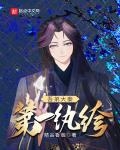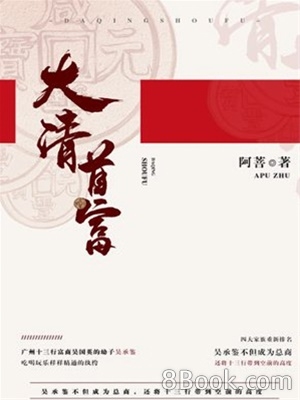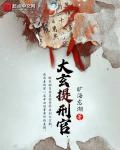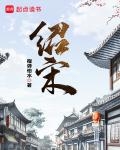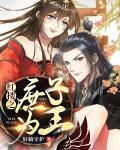Chapter 132 What is this (I)
Jinshi were called "disciples of the emperor." This does not mean that they went to school with the royal family and learned knowledge from the emperor, nor does it mean that the supervisor of the Imperial College they attended was nominally appointed by the emperor.
The reason why they were called disciples of the emperor was that these Jinshi came to Beijing for the imperial examination when they were still Juren. The examination selected not the three lists of Jinshi, but the Juren who were qualified to participate in the palace examination.
The palace examination was the final stage of the imperial examination in the Qing Dynasty. No matter what connections or tricks were used in the imperial examination, the examinations of these palace examinees were completely managed by ministers appointed by the emperor himself. It was meaningless to bribe the invigilators, because the invigilators could be bribed, but the emperor could not.
The imperial examinations were based on eight-part essays, while the palace examinations were based on policy questions. Policy questions refer to one’s opinion on something. If one wants to be an official, how can one be a timid person without a strong opinion?
Candidates entered the exam at dawn and went through rituals such as roll call, distribution of papers, praise, and salute before the exam questions were announced.
In the early Qing Dynasty, the topic for policy writing was "Current Affairs Policy", which was 200 to 300 words long and asked about one or two issues. After Kangxi, the topic became 500 to 600 words, or even about a thousand words.
Most of the Qing emperors would personally examine the examination papers and select the talents that meet their needs at the current stage based on the answers of the candidates. The imperial examination system itself has many problems, but this system has lasted for thousands of years and has been tempered and refined. It is already very mature and effective.
Unless you are a SB emperor, you know that you need to use this system to select qualified talents who meet your needs.
Since it was the emperor who reviewed the papers, the status of Jinshi was determined by the emperor. Therefore, Jinshi were also called "disciples of the emperor".
County Magistrate Dong was a Jinshi, and was considered a disciple of Emperor Kangxi. He had seen the emperor up close and had spoken to him face to face. Even as a county magistrate, he was not comparable to those people who bought official positions.
At this time, when Emperor Yongzheng summoned him, County Magistrate Dong calmly stepped forward to pay his respects. After the ceremony, Emperor Yongzheng ordered County Magistrate Dong to sit down, and the two of them began to chat.
In addition to knowledge, appearance is also very important for Jinshi. If an official looks like Zhong Kui, it is a bit shocking. After all, the country is so big, can't even select Jinshi with decent looks?
County Magistrate Dong was a Jinshi, and he looked pretty good. He had also been sitting on the bench in the Imperial Academy for ten years, and his conversation had been tempered. Yongzheng himself was a bit obsessed with looks, and when he saw County Magistrate Dong's appearance and conversation, he liked him very much.
As they talked, they talked about local management. County Magistrate Dong told them what he had learned from Huo Chong. To be able to pass the imperial examination, one's own quality is not ordinary. Huo Chong's management method is very simple, just like studying, it is all "preview, study, practice, review".
Facing Yongzheng, County Magistrate Dong spoke eloquently, using elegant and rigorous words, which made Yongzheng nod slightly.
Just when Magistrate Dong thought he had gotten through it, Yongzheng couldn't help but think of that bastard Huo Chong. Magistrate Dong's words reminded Yongzheng of how he plotted against the Fourteenth Prince before he was about to become a great general, and as a result, Kangxi ended up in Yongzheng's residence by mistake.
That time, Huo Chong was able to clearly explain how he ran his business, and County Magistrate Dong's words already had a hint of Huo Chong's.
To be fair, when Yongzheng first met Huo Chong, he also wanted to kill him. If he was a bandit, why would he keep him alive if he wasn't going to kill him?
However, Huo Chong happened to save a close guard of Yongzheng that time, so it was really inappropriate to directly order Huo Chong to be killed. Yongzheng had no idea that the glass fire and alcohol that Huo Chong brought with him were actually made by Huo Chong himself. So he let Huo Chong escape.
Afterwards, Yongzheng did not want to dirty his hands, as doing so would only cause dissatisfaction from his father. Being a cold-faced prince who does not form cliques will create the image of Prince Yong as a lone minister.
At that time, Yongzheng had to work hard to get his father to remove the comment that he was "moody". Because he killed a person who had not committed a crime just because he was unhappy, the Eighth and Fourteenth Princes, who were watching closely, would confirm this comment.
Yongzheng originally thought that the officials would kill Huo Chong, but the fourteenth prince acted swiftly and saved Huo Chong from death. Huo Chong was also very cunning and seized this fleeting opportunity to give himself an official title. If anyone wanted to kill Huo Chong at this time, the Ministry of Personnel would have to intervene.
The closest time to killing Huo Chong, Kangxi happened to come again. In Yongzheng's mansion, Huo Chong was eloquent and used his ability to make the truth sound like a lie to the fullest.
If other people encountered such a situation, nine out of ten would try to defend themselves. In that situation, if Huo Chong dared to defend himself, he would be dead.
Huo Chong was indeed defending himself at the time, but he was not talking about how he did the right thing, but rather how he did it and why he did it.
When Huo Chong presented the recipe, he did not hide anything. So he was able to explain it in a clear and concise way. Even the confused Fourteenth Prince and the clear-headed Emperor Kangxi could understand it clearly.
The last part of the defense made it clear that the royal craftsmen in the capital could make glazed fire at any time without any expense, so the price was expensive. Huo Chong needed various preparations to produce cheap glazed fire after the preparations were completed. So for the royal family, Huo Chong was unreliable, and the royal craftsmen in the capital were the ones the royal family could rely on.
At this point, Kangxi and the Fourteenth Prince did not want to kill Huo Chong, so Yongzheng knew that he could not kill Huo Chong through this incident.
Later, although Huo Chong became a local tycoon by virtue of his official title and his business ability, he also became a major taxpayer. He had never been an official before. It was even more difficult to kill Huo Chong.
After Yongzheng ascended the throne, he had political enemies at home and rebellions in the northwest. So many officials who owed money to the treasury had not yet been dealt with, and a local tycoon who paid taxes on time was not even considered.
Sighing in his heart, Yongzheng felt that this bastard Huo Chong would probably be able to live a life of wealth and luxury from now on.
The murderous intent temporarily subsided, and Yongzheng didn't even want to mention Huo Chong anymore, so he asked about local affairs.
County Magistrate Dong actually didn't want to mention Huo Chong at all, but when talking about local management, Huo Chong really couldn't be avoided. Even so, County Magistrate Dong didn't mention Huo Chong's name, and told Yongzheng about the life of the people in this poor place of Mouping.
Yongzheng looked calm at first, but as he listened, his expression turned cold. County Magistrate Dong had no idea what Yongzheng's expression meant, so he could only slowly stop talking.
If it was Huo Chong, he would know something was wrong when he saw this look. Many descriptions in later generations said that when Yongzheng discussed someone with a cold attitude, he was going to kill someone.
County Magistrate Dong, who still didn't know about this, heard Yongzheng ask, "What you just said was done by Huo Chong, right?"
County Magistrate Dong didn't want to mention Huo Chong simply because he didn't want to say that many of his experiences in the past three years were learned after seeing Huo Chong's business methods. Since Yongzheng asked openly, County Magistrate Dong did not hide it and admitted it readily.
Then Yongzheng continued to ask coldly: "Tell us everything Huo Chong has done in the local area in the past few years."
Although he did not want to praise Huo Chong, Magistrate Dong did not want to belittle him. Even if Huo Chong's actions were not righteous, they at least had some basic morality. Especially when providing disaster relief, he actually ordered his subordinates not to buy the people's belongings sold at low prices to get through the difficulties. He was also willing to help the people keep their belongings and resume production.
When County Magistrate Dong heard this in Mouping County, he didn't say it out loud, but he felt a little impressed in his heart.
Since the emperor asked, Magistrate Dong told Yongzheng what he knew.
When County Magistrate Dong finished speaking, Yongzheng ordered him to write down what he had said, and to write it down now. After giving the order, Yongzheng saw that it was getting late, so he ordered the eunuch to give County Magistrate Dong a meal.
This grace made County Magistrate Dong immediately grateful. Although he was a disciple of the emperor, County Magistrate Dong had never been given a meal by the emperor. This was obviously not a meal before execution. Being given a meal was an honor.
The meal was not sumptuous, just two dishes, a soup and a bowl of rice on a tray. Magistrate Dong finished his meal quickly, and wrote down everything Huo Chong had done with his pen as fast as the wind.
After reading it, Yongzheng said nothing, but ordered the guards to escort County Magistrate Dong out of the palace. Standing outside the palace gate, County Magistrate Dong felt that everything seemed unreal. Questioning, giving food, writing memorials. After all these things, he didn't even know what Yongzheng was thinking. At this time, County Magistrate Dong felt that he had some understanding of the saying "the emperor's heart is like the sea".
Just as he was about to leave, he saw a group of people arriving at the palace gate. The guards spoke briefly and quickly lifted up a sedan chair. Under the light of torches, a prince in gorgeous clothes was helped onto the sedan chair and hurriedly carried into the palace gate.
Although Magistrate Dong was curious, he knew he must not ask, so he quickly turned around and left the palace gate.
Needless to say, the only prince who could be allowed into the palace that night was Prince Yi. In fact, according to Yongzheng's mind, if possible, he would like to live with his beloved thirteenth brother, and even sleep in the same bed with him.
After all, his Thirteenth Brother was not in good health, and Yongzheng really felt distressed about having him running around.
When Prince Yi arrived at the study, Yongzheng directly handed what Magistrate Dong wrote to his thirteenth brother and began to read other memorials.
The Thirteenth Brother read it and felt that it seemed, probably, maybe... there were some problems. Looking up at his brother Yinzhen, the Thirteenth Brother understood that his brother wanted to kill Huo Chong. Following his brother's thoughts, the Thirteenth Brother grasped the key point.
"Your Majesty." Prince Yi called Yongzheng.
Yongzheng raised his head and asked calmly, "Have you finished reading it?"
Prince Yi didn't say anything empty. "Your Majesty, are you worried that Huo Chong will become Zhang Jiao in the future?"
"In the future? Haha!" Yongzheng sneered, "This Huo Chong is now a Zhang Jiao!"
The knowledge of the Qing emperors was not bad, and the two brothers' words needed no explanation. Zhang Jue was the founder of the Taiping Dao in the late Eastern Han Dynasty, who said "the blue sky is dead, the yellow sky should be established", and was also the initiator of the Yellow Turban Rebellion.
If Huo Chong was there at this moment, he would probably slap his thigh and exclaim, "I fucking knew you would understand!"

